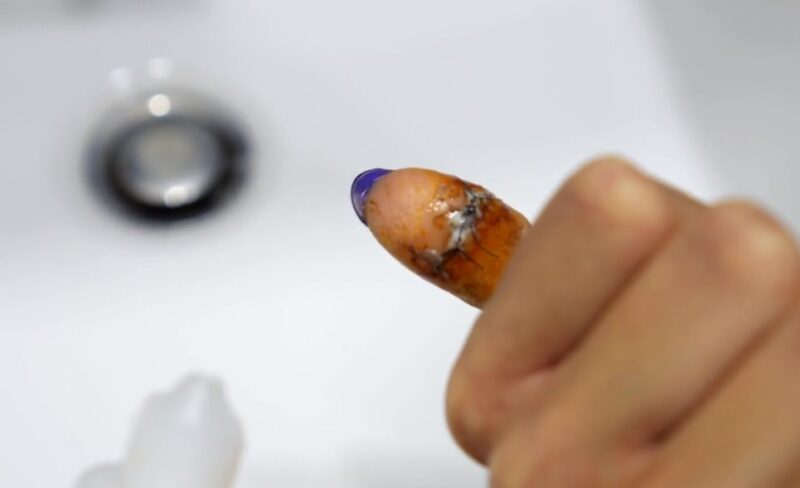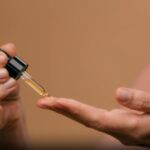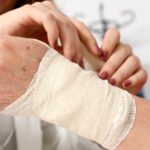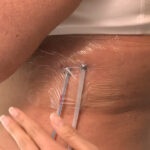Whether you are recovering from surgery or injury, it is important to keep an eye out for a possible wound infection. Your risks of infection are increased by certain chronic conditions, medications, psychosocial factors, and poor wound care hygiene practices.
Even when you take all of the right steps to prevent an infection, factors beyond your control may cause one to develop. Microorganisms like bacteria may infiltrate the wound, multiply, and damage your skin’s tissues, which causes systemic illness and delays the healing process. If you notice any of the following signs, see your doctor as soon as possible for infected wound treatment.
1. Feelings of Malaise

Malaise is a common non-specific sign of a localized systemic infection. It is a feeling of tiredness and a lack of energy. You may not feel up to completing normal activities or begin sleeping more than usual.
While this type of feeling is associated with surgical recovery, there is a big difference from what is typical and what is a sign of infection. People who are recovering from surgery without an infection feel a little better day by day. Those recovering from surgery who contract an infection might feel good and then suddenly become exhausted.
2. Running a Fever

Running a fever can cause headaches and decrease your appetite. Running a low-grade fever of 100 degrees Fahrenheit or less is typical following surgery. If your temperature reaches 101 degrees or more, it may be indicative of a wound infection.
If this happens, consult your surgeon or physician immediately. Keep in mind that if your fever is due to an open or chronic wound, antiseptics in the form of impregnated dressings containing honey or silver may be helpful.
3. Fluid Drainage
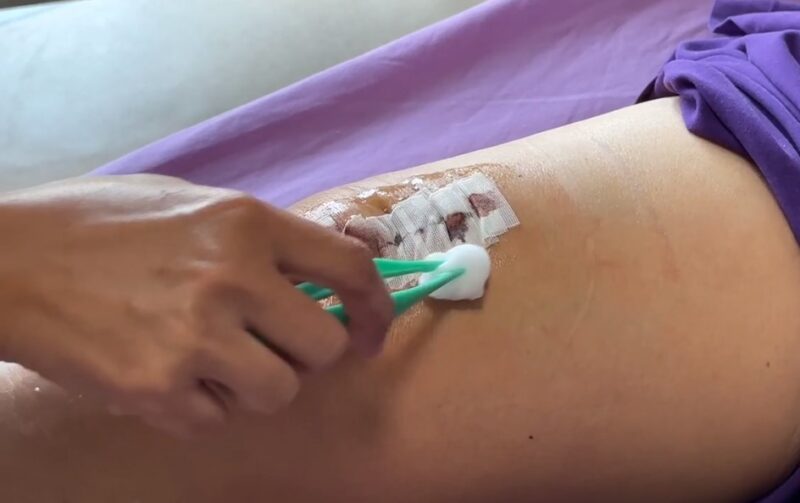
It is quite normal to have some fluid drainage from the incision area after surgery. Expect clear or slightly yellow-colored fluid to drain from your wound.
If the drainage fluid is cloudy, green, or foul smelling, this could be a sign that the wound is infected. Healthy wound drainage can be managed by absorbent dressings like hydrocolloids or negative pressure therapy. Contact your health care provider to find out what types of wound care supplies you need to treat the infection.
4. Continual or Increased Pain

While pain is common after surgery, it should gradually subside as your body heals. Pain medication can help, but you should be able to stop taking them comfortably over time. To prevent unwarranted pain, follow your doctor’s wound care directions and avoid strenuous activities. If you continue to experience pain or suddenly have increased pain, it may be a sign of infection. If this happens, consult with your surgeon or physician.
5. Redness and Swelling
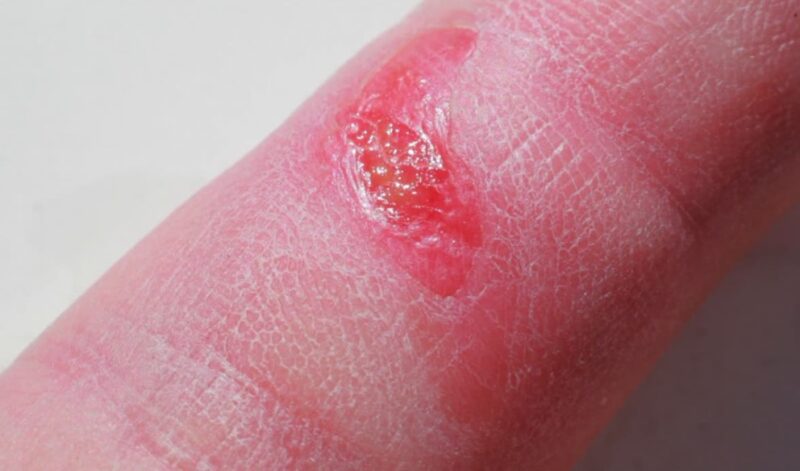
Some redness is normal at the wound site, but it should diminish over time. However, if your surgical incision or wound continues to be red or exhibit radiating streaks known as lymphangitis, this is a warning sign of a wound infection. Like redness, some swelling is to be expected at the wound site and should decrease over time. If the swelling does not go down during the initial phases of the wound healing process, you could have an infection.
6. Hot Incision Site
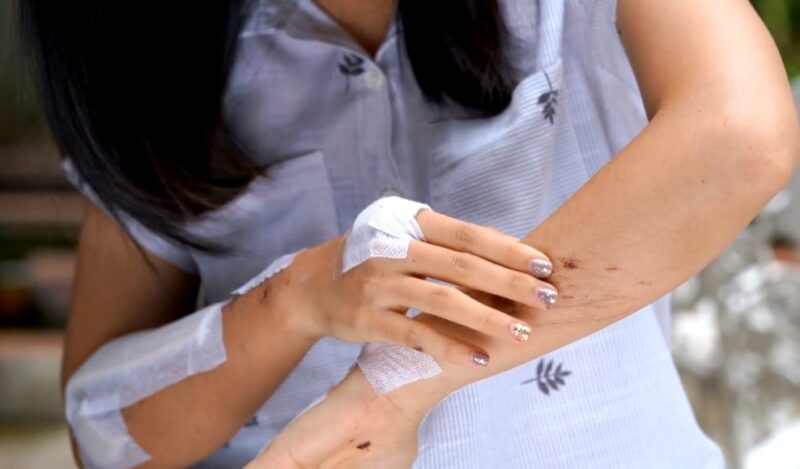
When an infection develops in a wound or incision, the body sends infection-fighting blood cells to the location. This may make your wound or incision feel warm to the touch. If the hot temperatures continue, the infection may cause you to develop other infection symptoms.
Effective management of a wound infection requires a multidisciplinary approach. It is essential to implement best practices and use advanced wound care products to prevent infections.
7.Change in Wound Color
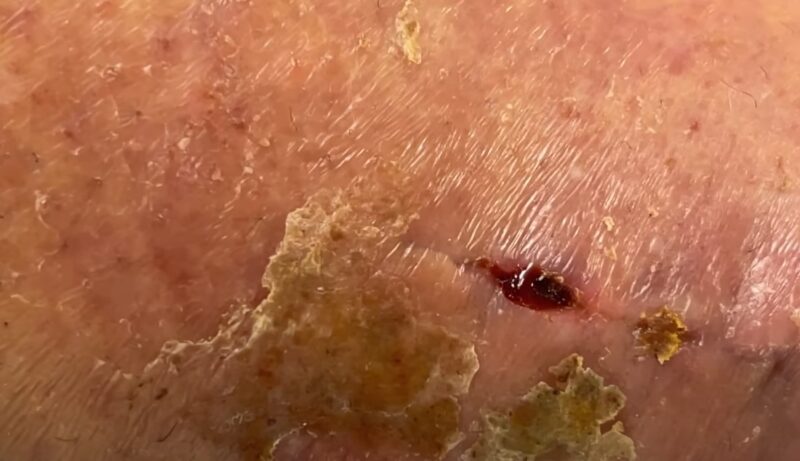
A healthy healing wound should gradually change in color from red to pink and finally to a normal skin tone. If the wound becomes dark, turns black, or has greenish discoloration, it’s a sign of infection. This indicates tissue death or necrosis and requires immediate medical attention.
8. Delayed Healing
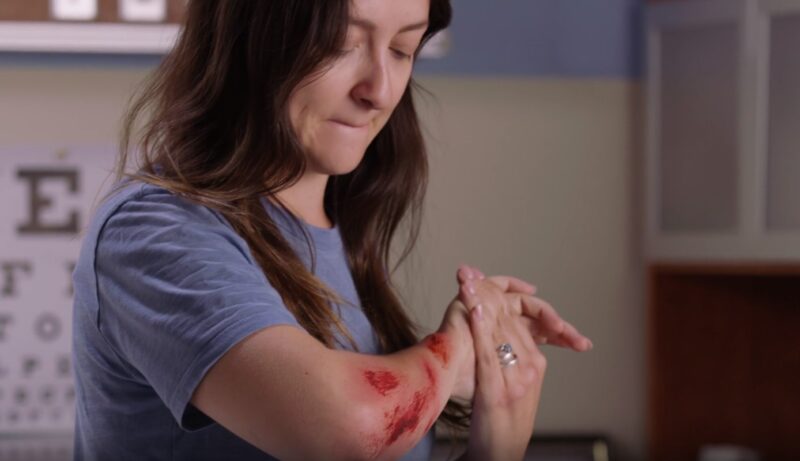
Wounds typically show signs of healing within a few days to a week. If your wound is not following the expected timeline for healing, it might be infected. Prolonged healing can result from infection hindering the body’s natural repair processes.
FAQs
Can diet impact wound healing?
Yes, a nutritious diet rich in vitamins and protein can enhance wound healing. Foods like lean meats, dairy, fruits,and vegetables support tissue repair.
How do I know if my wound dressing needs changing?
Change dressings if they become wet, soiled, or after a specified period. Follow your healthcare provider’s instructions on dressing changes.
Can over-the-counter medications help with wound infection?
While they can help manage symptoms like pain, they do not treat the infection. Antibiotics prescribed by a doctor are necessary for treating an infection.
Should I keep my wound covered or open to air?
Keep the wound covered as per your healthcare provider’s advice. Proper dressing protects the wound from infection and maintains a moist environment for healing.
Can stress affect wound healing?
Yes, high stress levels can slow down the healing process. Stress management techniques and adequate rest are beneficial for recovery.
Final Words
Proper care and vigilance are key to ensuring a smooth and swift recovery from surgery or injury. Understanding the signs of wound infection is not just about healing the wound itself; it’s about safeguarding your overall health. Infections, if left untreated, can lead to serious health complications, making it crucial to be aware and proactive.
Remember, each individual heals differently, and factors like pre-existing conditions, age, and lifestyle can influence recovery times and infection risks. It’s important to follow your healthcare provider’s instructions meticulously and maintain good hygiene practices. Don’t hesitate to reach out to your doctor at the first sign of any unusual symptoms.
Adopting a healthy lifestyle, including a balanced diet and proper rest, can significantly aid in your healing process. Stay informed, stay vigilant, and never underestimate the importance of early intervention in case of infection. Your health is your greatest asset; take all the necessary steps to protect it during your recovery journey

